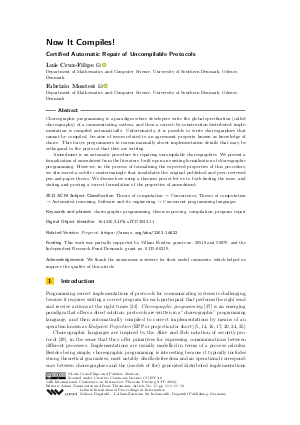LIPIcs.ITP.2023.11.pdf
- Filesize: 0.7 MB
- 19 pages

 Creative Commons Attribution 4.0 International license
Creative Commons Attribution 4.0 International license




Feedback for Dagstuhl Publishing